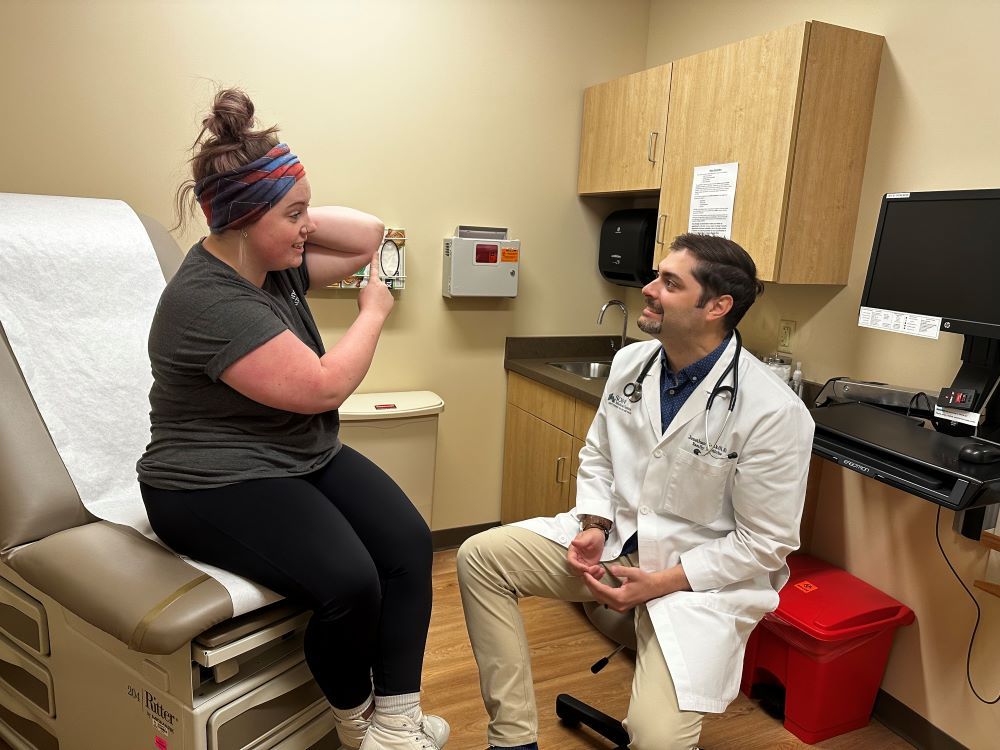Primary Care
Want to learn more about this at Kettering Health?
As summer approaches, roller skates, hiking boots, and bike helmets come out of storage. And with these warmer-weather activities comes more chances for minor injuries, such as cuts and scrapes.
Most wounds, classified as an injury that breaks the skin, will heal on their own with proper care. Dr. Jonathan Gaskill, a primary care physician, explains how to properly clean and bandage your wounds, as well as when to seek medical attention.
How to clean a wound
The first step to care for a wound is to wash it properly.
“You want to clean around the wound with soapy water and avoid getting soap in the wound as much as possible,” Dr. Gaskill says.
Dr. Gaskill warns against using any antiseptics such as hydrogen peroxide or rubbing alcohol. These can damage the remaining healthy skin.
After you’ve thoroughly washed and rinsed your wound, cover it with clean gauze or a bandage. Then apply a thin layer of ointment, such as Vaseline, to keep it moist. Ointment also acts as a second skin to keep bacteria out of a wound as it heals. Change your bandage daily and clean in between bandages to avoid infection.
Signs of an infection include
- Increased pain at the wound sight
- Red skin around the wound
- Drainage or discharge coming from the wound
If you notice signs of an infection, call your doctor immediately. You should also contact your doctor if bleeding continues 30 minutes after being injured, or if your wound has not healed within a month.
Staying prepared
Minor wounds are common, especially during the busy summer months. So it’s essential to stay prepared for when they do happen.
Dr. Gaskill advises everyone to stay up-to-date on their tetanus shots. Tetanus is a serious bacterial infection that is easily prevented with a routine vaccine.
Another way to prepare for minor wounds is to have a fully-stocked first aid kit in both your home and car.
Items to include in your first aid kit include
- Clean gauze
- Fresh bandages in various sizes
- A water bottle to clean the wound if clean tap water is not available
- A pack of disposable gloves
“You might not be somewhere where you can wash your hands before doing wound care,” Dr. Gaskill says, explaining the importance of gloves in a first aid kit.









